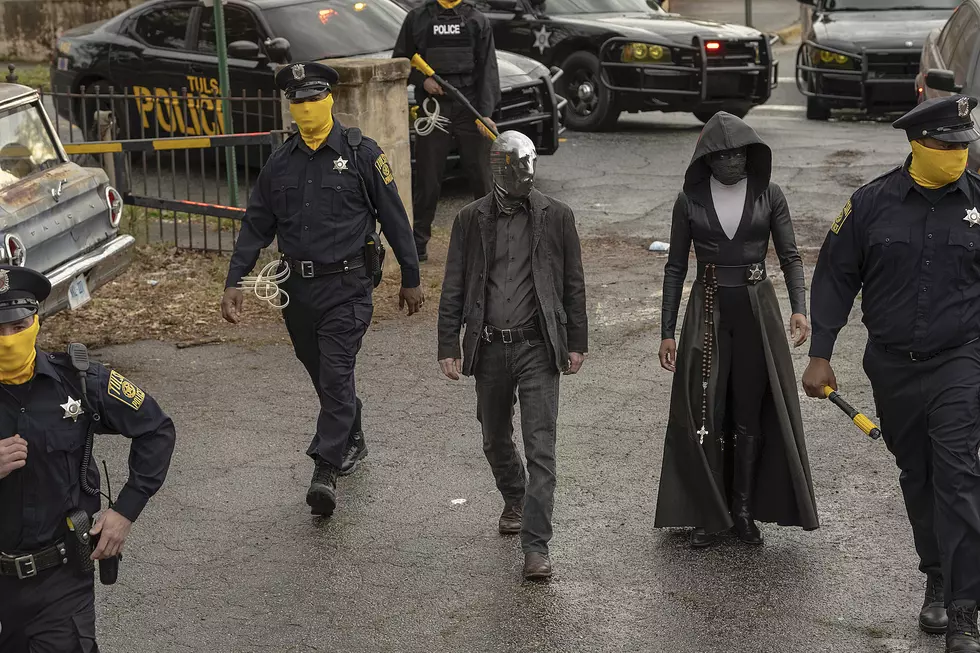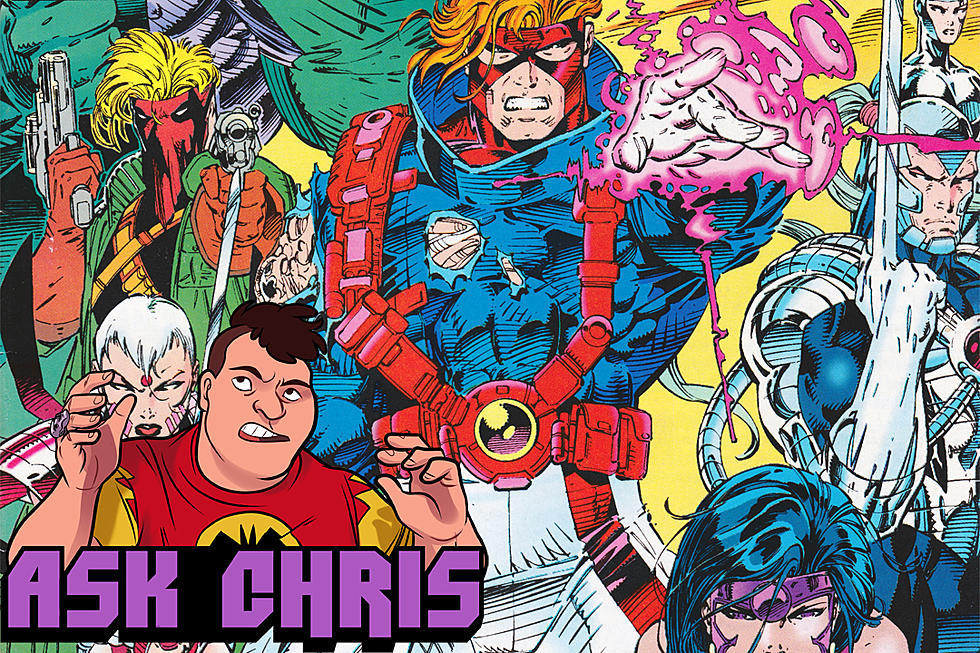![Alan Moore Calls the Comic Industry a Bunch of Gangsters on British TV [Video]](http://townsquare.media/site/622/files/2012/04/alanmoorehard.jpg?w=980&q=75)
Alan Moore Calls the Comic Industry a Bunch of Gangsters on British TV [Video]

Whether it's because of DC Comics' upcoming Before Watchmen or the increasingly mainstream cultural implications of his V For Vendetta series in the wake of the Occupy Movement, Alan Moore is getting more press than ever these days. His recent appearance on a British television chat show included some familiar comments about why he doesn't want his comics to be turned into movies, the morality of underage sex in Lost Girls, his thoughts on Before Watchmen and -- of course -- why the comic industry is filled with gangsters.Despite more than a little familiar commentary, Moore's appearance on the BBC's HardTalk is actually one of his better interviews in recent memory. He admits that his problem with movie adaptations is "a personal problem" born, he explained with some good humor, "from a position of ignorance," and comes across as thoughtful, good-natured and willing to consider opposing views on a number of topics. These includes the use of the V for Vendetta mask by Anonymous and the morality of V as a hero in the original story ("We took a great deal of trouble to actually examine, 'is it all right for him to kill people because he's the hero,'" Moore said, answering "No it isn't, killing people is always wrong"), as well as outrage over the underage sex in his Lost Girls graphic novel ("These are not real people at all, they are exactly as old as the paper on which they are printed," he explained). As you might expect, however, the brunt of his ire was reserved for Before Watchmen, DC Comics and the current comic industry.
Describing himself as "less than delighted" at DC's decision to release eight new series that take place before Moore and Dave Gibbons' classic 1986 superhero series, Moore explained how the publisher ended up owning the characters in the first place:
This is something where originally we were told that we could embark upon Watchmen because they knew that we wanted to own our own stuff and they had a contract that would enable us to have the rights back when they went out of print. Now back at that time there was no such thing as a comic that had remained in print for more than six months so we signed these contracts, obviously without reading them very carefully because we trusted these people, then we found out... that DC Comics would own all this stuff forever.
As he went on to explain, however, this shouldn't have come as a surprise considering the history of the American comic book industry:
You have to remember that the comics industry was set up in the 1920s by Legs Diamond, Meyer Lansky, it was set up as a cover for bootlegging... I'm talking about the original gangsters, as I believe the young people like to phrase it these days, the Meyer Lanskys and the Legs Diamonds. The ethics of the comics industry have not changed since those days when they were cheating Jerry Siegel and Joe Schuster, who were two teenagers from Cleveland, who had created Superman, and National Comics...they waited until Siegel and Shuster were going off to fight in the Second World War. And then they told them that "we need to own the characters while you're away, but you'll get them back as soon as you return." These are the ethics that the industry runs on, they've not changed significantly in 70 years.
He also described today's comic industry has not having had an original idea in two decades, which ties in with comments about the industry and Before Watchmen that unsurprisingly got many riled up last month. Clearly, the part about preferring to criticize from a position of ignorance should be remembered when reading such commentary in future...
[Via Bleeding Cool]
More From ComicsAlliance









